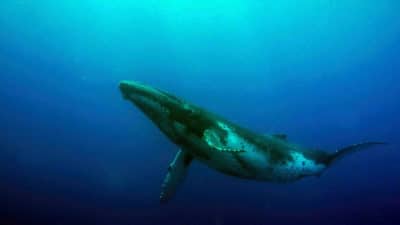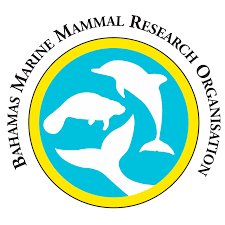Impact of Pandemic on Wildlife

The Khaled bin Sultan Living Oceans Foundation is developing lessons for our Education Portal on the impact of the COVID-19 pandemic on wildlife, thanks to a generous grant from the National Geographic Society.
Many marine organisms depend on sound to navigate, communicate, forage, and avoid predation or other threats. Unfortunately, noise pollution in the ocean has increased fourfold in the last two decades and is expected to double in the next. It now poses a major threat to animals that depend on sound in the ocean, especially whales who are particularly sensitive to noise pollution.
The COVID-19 pandemic has affected all facets of life. One noticeable impact of the pandemic to wildlife was a massive reduction in noise pollution. With shipping curtailed in many locations, cruise ships canceled, and tourism put on hold, there was much less boat traffic—and associated manmade noise pollution— at the beginning of the pandemic. This has given scientists an opportunity to better understand the importance of sound and noise pollution in the marine environment.
We are working with partners Dr. Ryann Rossi, who we co-created the Mangrove Detectives program and the Bahamas Marine Mammal Research Organisation (BMMRO) to provide educational materials that demonstrate the importance of sound for marine animals. BMMRO will collect underwater recordings of whales, other marine life, and ship noise before, during, and after the pandemic. The foundation’s Education Department will use this data, and other information learned about the impact of the pandemic on marine noise pollution, to develop lessons for a new Animal Behavior unit in our Coral Reef Ecology Curriculum.
These lessons will help middle and high school students and teachers learn about noise pollution and the threat it poses to marine life. Students will use this scientific data collected by BMMRO to investigate how underwater noise pollution impacts marine mammals such as the endangered sperm whale (Physeter macrocephalus), and how COVID-19 has altered noise pollution in critical habitat for sperm whales. The new lessons are currently under development but will be added to our Education Portal by the end of the year.
Partner Profile
The National Geographic Society is the philanthropic arm of National Geographic. They support a diverse, international community of changemakers who use the power of science, exploration, education, and storytelling to illuminate and protect the wonder of our world.
 The Bahamas Marine Mammal Research Organisation (BMMRO) is a Bahamian non-profit organization with a mission to promote conservation of marine mammals and their habitats through scientific research and educational outreach.
The Bahamas Marine Mammal Research Organisation (BMMRO) is a Bahamian non-profit organization with a mission to promote conservation of marine mammals and their habitats through scientific research and educational outreach.